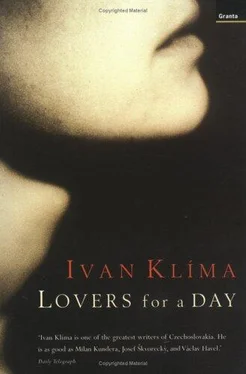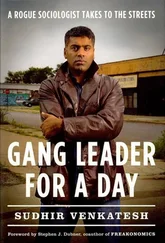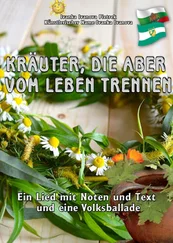The nurse stroked his forehead and went out of the room.
The next night Alois Burda died. Nurse Věra happened to be on duty and a few seconds before he took his last breath she came and sat near him and held his hand. By then it was unlikely that he even noticed.
Afterwards the nurse was given the job of removing the possessions from the dead man's bedside table and making a precise list of everything. She did so. The list had eighteen items; number eleven read: One pair of felt slippers with one pair of socks inside. The nurse was surprised at how heavy the slippers were and it occurred to her to take out the socks, list them separately and look inside the slippers, but she didn't as it would mean her adding another item to the list, and besides it seemed pointless to waste time on things that no one was likely to use any more.
When Burda's wife came to the hospital for the death certificate, they handed her a bag of the deceased's property and a list of its contents. His wife ran her eye down the list of things. In the last few years she had grown sick of her husband and the few pathetic items he had left behind sickened her even more. They handed her his wallet and the three hundred crowns. She took the bag and put it in the boot of her car. When she was driving away from the hospital she noticed an illegal rubbish tip. She pulled up in front of it and took a careful look around her. Then she opened the boot and tossed the bag onto the tip.
That evening nurse Věra had a date with her violinist. 'That Burda on ward eight went to the mortuary the night before
last,' she announced. 'He was supposed to be horribly rich — one of the richest men in Prague.'
'And did he give you anything?'
'No,' she said, 'he only had three hundred crowns in his wallet.'
'Rich men tend to be strange,' he said. 'Who do you think he'll leave it all to?'
'Goodness knows,' she said. 'I don't think he had anyone. He had no one to come and hold his hand, not even for those last few moments.'
(1994)
A blind girl stood before the castle entrance playing the Amerindian melody 'El Condor Pasa' on the flute. A short distance away a coach full of foreigners pulled up and their guide started bellowing instructions into a megaphone. Japanese tourists swarmed from the bus and started taking photographs; someone started to play a hit song loudly on a radio. The sound of the flute was almost drowned out in the din, but the blind girl went on playing single-mindedly.
Jakub stopped a short way off. He liked the tune and he was also taken by the blind girl's tenacity. Maybe it wasn't tenacity but desperation. He found the girl attractive. Her hair was a blaze of coppery red, while her complexion seemed almost unhealthily pale. Her eyes were shut and her white stick was propped against the wall of the house. A small case lay in front of her with a few coins in it.
Jakub had had a successful day. Admittedly he was only a student of mathematics (though he also attended a few philosophy lectures), but he had just received an honour for his last exam and what's more he had just got a good deal for his step-father and been paid a decent commission for his pains. He pondered whether he should just give the girl a coin or even a bank note, but in the end he went over to her and said, 'You play really well. Could I invite you to dinner for that song?'
The girl turned her face to him. 'Is it me you are asking?' she said and blushed. She was wearing a cheap frock of flowery calico.
'There is no one else playing here.'
'There's always someone playing here every day from morning to night. And I don't even know you.'
So Jakub introduced himself.
'Why are you inviting me?'
'I told you. Because I like the way you play.'
'I'm not sure. I'm not sure,' she repeated. 'I don't want you to pity me. But you have a kind voice. May I touch your hand?'
Jakub gave her his hand but she didn't shake it. She ran the tips of her fingers over it as if by doing so she could tell if he wanted to harm her. She had long, fine fingers and her touch seemed tender to him. 'Okay', she said, 'but not to dinner, I couldn't accept that from you. What if we just go and sit somewhere and have a mineral water? Or a glass of wine, maybe?'
He took her to a Chinese restaurant, because he liked Chinese food and he had had a successful day. He also wanted to please her. Why her of all people? He had no girlfriend at the time, or anyone else he needed to please. He ordered duck done in some Chinese style (the girl declared she had never eaten anything like it, and he felt as flattered as if he had cooked the food himself) and some rice wine. So they became acquainted.
The girl's name was Alžběta and she was a year older than Jakub. She had been blind from birth and there was no hope of her ever gaining her sight. From time to time she earned a bit of extra money by playing the flute, as the invalidity pension she received barely covered her rent and basic necessities. And sometimes she wanted to buy a cassette or CD or go to a concert. She also wanted to buy a new guitar.
Her eyes were a misty grey and Jakub had the impression that now and then she gazed at him fixedly, but then her eyes would assume an empty look. She was shy and often apologized, asking him repeatedly whether she wasn't keeping him or if he was bored.
Then he walked 'with her to the house where she lived. It was an ugly and shabby apartment house in a dirty street in Vršovice. When they were saying goodbye, she thanked him several times and then said, 'I shouldn't think we'll see each other again.'
What most surprised or even moved him about this little speech was the word 'see'. 'Why not?' he asked. 'I know where you live now.' And he gave her his address too.
A few days later he rang her doorbell and invited her out for a walk.
'Why did you come for me?' she asked.
He wasn't sure himself. But he replied, 'Because I wanted to see you.'
'I didn't expect you to come.' Then she let him take her by the hand and lead her. They walked as far as Grôbe Park. Spring was coming to an end: there was the scent of jasmine all along the path and the park was a riot of colour. They sat down on a bench and he tried to describe the city below them. But the city was a mixture of shapes and colours that she could not possibly comprehend. She recognized only sounds, scents
and smells, and the only shapes she knew were the ones she could span with her fingers.
They talked about music and then Jakub tried to explain post-modernism to her. He told her he went horse-riding and mountaineering, and enjoyed playing basketball, as he was over six feet tall. Also, that he helped his step-father sell real-estate and that until the beginning of last spring he had been going out with his classmate Jitka.
Alžběta hadn't been going out with anyone — either last spring or the previous one. She played the flute, the violin and the guitar and had a good musical memory. She could memorize simple tunes at the first hearing; more difficult ones she needed to hear twice. She had a number of girlfriends, most of whom were blind as well. She also had two brothers who were older than herself and sighted.
He accompanied her as far as her house and then leaned over and kissed her on the hair. 'You have pretty hair.'
'So I've been told. Apparently it's the colour of flame.' She took his hand and pressed it. Then she stood on tiptoe and searched for his face with her hand. When she found his chin she stroked him from his mouth to the tips of his hair. 'Thank you,' she said.
'What are you thanking me for?'
'For today.'
'I didn't make it.'
'For me, you did.' She didn't ask if they'd see each other again and he didn't say anything either, but he came back two days later.
Читать дальше












